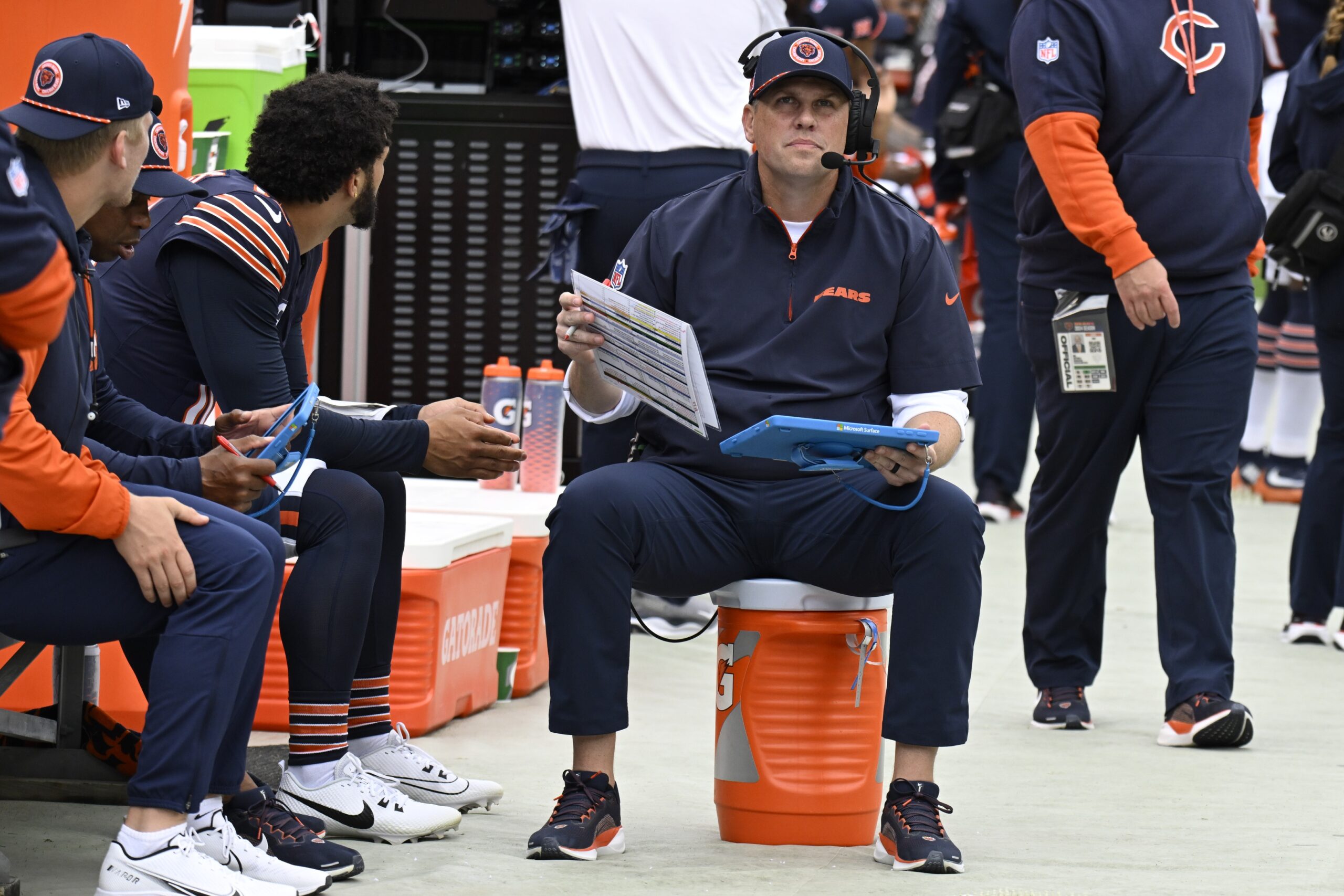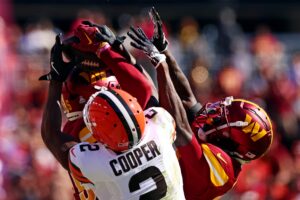The Chicago Bears offense faced early-season struggles, drawing criticism from analysts and fans for their lack of production. Currently, the Bears rank 30th in the NFL in 1st quarter points per game, averaging just two points. In response, offensive captains—including Caleb Williams, D.J. Moore, Cole Kmet, and Marcedes Lewis—met with Offensive Coordinator Shane Waldron to address the issues. The meeting went well, and now the team is seeing results on the field, notably in wins against the Los Angeles Rams and Carolina Panthers. NFL Network’s Stacey Dales also pointed out that the Bears did not incorporate scripted plays to start the series, which may be contributing to their slow starts on offense this season.
Lack of Scripted Plays Exposes Bears’ Early Offensive Troubles
On the 670 The Score Podcast, Dales provided insights into the Bears’ previous approach of starting games without scripted plays. She explained that the team would go in with “ideas” rather than a set 15-play script, which is uncommon among other teams. For instance, San Fransico 49ers Head Coach Kyle Shanahan utilizes a 15-25 play script, while Minnesota Vikings Head Coach Kevin O’Connell follows a 20-play script. The Bears have recently started incorporating scripted plays, which Dales credits for the offense’s improvement. Now, the running game has drastically improved, the offensive line appears more cohesive, and Williams looks more decisive to start the game.
From Waldron’s perspective, he may have wanted to help Caleb feel comfortable by allowing him to choose plays that felt right to begin the game. However, there are times when it’s beneficial for a rookie quarterback to have a scripted series to ease some pressure. Williams likely brought this up to Waldron during their meeting with the offensive captains.
History of Scripted Plays
The concept of scripting the first 15 plays of a game originated with Paul Brown and Bill Walsh in the 1970s. Since then, it has become a widely adopted practice in offensive play-calling. Teams generally stick to this script but can deviate if the plays aren’t working. So it was a shock to Dales and many Bears fans to find out the team wasn’t scripting the first 15 plays of the game.
Outlook
After Week 3’s loss to the Indianapolis Colts, the Bears started using scripted plays, and it’s worked. Moore also mentioned that he feels “everybody’s wifi is finally connecting on offense.” It’s refreshing to see a Bears’ offensive coordinator take advice from his players, incorporate it into offense, and learn from his mistakes. And the scripted plays aren’t the only change Waldron made on offense. He’s also incorporated up-tempo series throughout the game, which suits Williams’ play style.
The Bears offense looks revitalized, and the defense is certainly happy about that. With both sides of the ball performing well, the Bears have a real shot at entering their Bye Week with a 4-2 record. They’ll need to stack up wins now. Why? Because it’ll be a real test for the offense in the coming weeks against tough divisional opponents—let’s just hope Waldron doesn’t deviate from the scripted plays.
Main Image: Matt Marton – USA Today Sports






